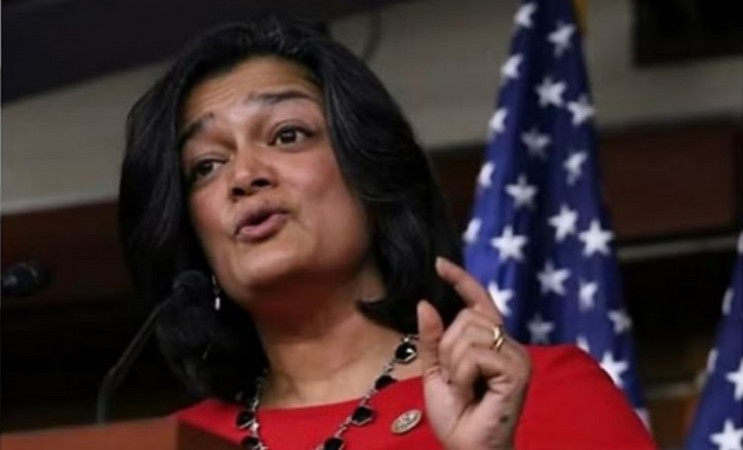
WASHINGTON: In the hallowed halls of the U.S. Congress, a bipartisan group of lawmakers, led by the indefatigable Indian-American legislator, Pramila Jayapal, has unveiled a resolute declaration aimed at decrying the ignominious specter of hatred, xenophobia, and racism that engulfed South Asian, Sikh, Arab, Muslim, and Middle Eastern communities in the aftermath of the catastrophic events of September 11, 2001.
This poignant resolution, unveiled on the 9th of September, just days ahead of the 22nd anniversary of that fateful day etched in the annals of American history, not only solemnly acknowledges the profound tragedy that befell the nation but also proffers a comprehensive suite of measures designed to provide succor to those who bore the brunt of unwarranted profiling in the wake of the attacks.
Addressing this solemn occasion, Congresswoman Jayapal underscored, "This day indelibly altered the course of our nation's history, and its repercussions continue to reverberate. As we commemorate this heart-rending chapter, it is imperative that we also reflect upon the enduring scars endured by Arab, Muslim, Middle Eastern, South Asian, and Sikh communities in the wake of that catastrophic day."
She poignantly added, "The tragic murders of Balbir Singh Sodhi, Waqar Hassan, and Adel Karas in the immediate aftermath of the attacks served as horrifying testaments to the depths of hatred. Xenophobia and racism have no place in our great nation, and today, we stand in solidarity to acknowledge the collective trauma experienced by these communities, marked by stigmatization, discrimination, and the erosion of their liberties."
The resolution, resolute in its pursuit of justice, calls for the establishment of an interagency task force, in collaboration with community-based organizations, to scrutinize government policies, assess their impact, and dismantle those policies that continue to perpetuate profiling and unjust targeting of these communities. Furthermore, it calls for hearings by congressional and civil rights bodies to deliberate upon the findings and recommendations of this interagency task force, with a central focus on community-based organizations.
In an enlightened gesture, the resolution advocates for the allocation of resources to community-based organizations, independent of law enforcement, which prioritize the experiences and aspirations of these communities. These resources are meant to bolster hate crime prevention efforts and provide support to victims of hate crimes and state-sanctioned violence.
Congresswoman Ilhan Omar, who co-introduced the resolution alongside Congresswoman Jayapal, solemnly remarked, "In the aftermath of these heinous attacks, Muslim, Arab, Sikh, and South Asian Americans were unfairly cast under the pall of suspicion, enduring harassment and unjust detention based solely on their identity. As we commemorate the anniversary of these grievous events, we must glean valuable lessons from our past mistakes. This resolution is an essential first step in acknowledging the injustices of yesteryears and embarking on a journey towards healing."
The resolution advocates for the creation of alternatives to traditional law enforcement and calls for the establishment of transformative justice programs that are culturally sensitive and linguistically accessible, with a particular emphasis on marginalized segments within these communities.
Additionally, the resolution implores the Secretary of Health and Human Services, the National Institute of Health, and the National Science Foundation to collaborate in researching the profound impact of hatred, government targeting, political rhetoric, and profiling on the physical and mental well-being of affected individuals.
The Arab, Muslim, Middle Eastern, South Asian, and Sikh communities in the United States have long been beset by the scourge of discrimination and violence, a plight that reportedly intensified following the events of September 11th. In the harrowing first month following the attacks, community organizations meticulously documented a staggering 945 incidents of bias and hate directed towards Americans of Middle Eastern or South Asian descent.
This climate of animosity sadly gave rise to bullying and violence in the daily lives of affected individuals, impacting their workplaces, businesses, community centers, and places of worship. Shockingly, the resolution notes that the Federal Bureau of Investigation and immigration authorities apprehended and detained as many as 1,200 Muslims immediately following the September 11 attacks, yet none of these individuals were ultimately indicted for any terrorist activity.
The resolution concludes with a resounding message, asserting, "This pernicious blend of hatred and government targeting severely curtailed the ability of these communities to exercise their constitutionally protected rights, including their freedom to organize, speak, travel, and worship without fear."
This vital resolution was introduced to the august halls of Congress by a dedicated group of representatives, including Pramila Jayapal, Ilhan Omar, Rashida Tlaib, Judy Chu, Andre Carson, Shri Thanedar, and Henry Calvin Johnson. It stands as a beacon of hope, signaling a collective commitment to rectify past injustices and pave the way for a future built upon the principles of equality, respect, and justice for all.